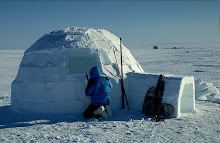Poetic Terms.
Alas, they are not all that interesting, but you do have to know them for the AP exam.
Yesterday, we talked about the following terms in poetry:
Dramatic Framework- situation ( whether actual or fictional, realistic or fanciful) in which author places his/her characters to express a theme .
Examples were: Frost's "Out,Out-";Eliot's "Prufrock"
Rhetorical Stress- stressing of words or syllables as to emphasize meaning & sentence structure.
What examples of this have we seen in poetry thus far?
Also, know the three types of irony and in what works to find them. :
Verbal irony- what is said is the opposite of what is meant
Dramatic irony -author implies a different meaning than what is written
Situational irony -differential between actual circumstances and what should be appropriate
Our next group of poetic terms will include:
Fixed form - a traditional patterns that is applied througiut the whole poem.
In French poetry, these would include rondeaus, villanelles, ballades, triolets, etc.
In English poetry, there are two major forms: villanelles and sonnets
Sonnet- a poem of 14 lines,with iambic pentameter
Petrarchan or Italian sonnet- consists of an
octave ( eight lines) and a
sestet (six lines) which act as a division of thought within the poem.
English or Shakespearean sonnet- Consists of three
quatrains (four lines) and a rhyming
couplet (two lines). These units also mark a division of thought.
Villanelle- consists of 5 three-line stanzas (
tercets) and a four-line concluding
quatrain. First and third line of first stanza are repeated refrian.





